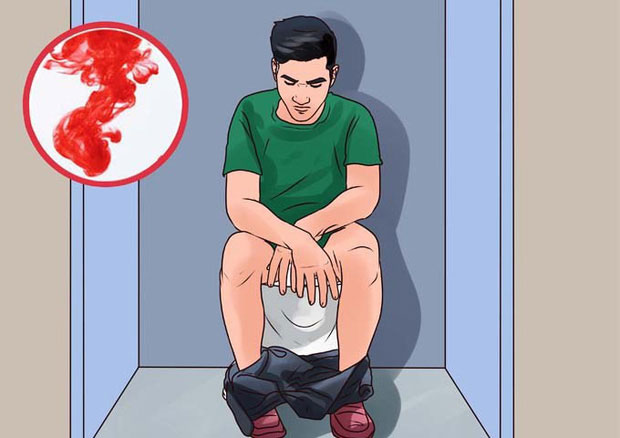3 signs that many people often confuse bowel cancer and hemorrhoids
Hemorrhoids often stem from unhealthy eating habits and lifestyle habits, particularly those at high risk. When you actively change your lifestyle, the risk of hemorrhoids will be repelled and not harmful to your health in the long term.
However, there is a problem to note that hemorrhoids also have symptoms of bleeding when defecating similar to the symptoms of intestinal cancer, thereby making the patient unaware of what he or she is suffering from. Appropriate treatment directions.
Here are a few common signs and how to identify these two diseases.
The color of blood in the stool

Common hemorrhoids will develop near the anal area, the color of blood flow from the stool and urine is usually bright red. If it is bowel cancer, unless the tumor is near the anus, the blood in the stool is bright red, but if the tumor is not near the anus and is located inside the colon, the blood color will be a deep red. more than usual.
Blood flow
When suffering from hemorrhoids, the anus often has to use force, which leads to hemorrhage, which causes blood to flow relatively, even small, into droplets or spray into rays. In severe cases, blood will flow continuously for several days. In addition, blood stains are clearly visible when you rub with toilet paper.

If it is blood in the stool due to cancer, the blood flow is not much, but it is accompanied by sticky and dense condition, often with mucus, pus. Cases of bowel cancer should be detected early to actively treat effectively.
Throbbing symptoms
Hemorrhoids often cause pain in the hemorrhoids in the anus. Therefore, each time defecating, patients often feel pain in the abdomen because the stomach is not discharged due to the obstruction of hemorrhoids. After defecating, the feeling of abdominal pain will disappear and only the painful feeling in the anal area.
Gastrointestinal cancer will cause patients to experience severe abdominal pain, especially in invasive areas such as the left, right or lower abdomen. The pain will be strong with increasing frequency so patients may experience a lot of body sweating, low blood pressure .
- Office people pay attention! When you see these signs you may be suffering from hemorrhoids
- How to cure hemorrhoids with simple medication
- Detected two culprit genes causing bowel cancer
- Early signs of cancer should not be ignored
- Levels of hemorrhoids, causes, prevention and diet
- Hemorrhoids are very familiar but not everyone knows these things
- There has been a new breakthrough in bowel cancer treatment
- The incidence of bowel cancer increases in China, the US, Australia and Europe
- The cause of young people with bowel cancer is 4 times higher than the previous generation
- HDL cholesterol reduces the risk of bowel cancer
- How to cure hemorrhoids for pregnant women
- Going out several times a day, what is the cause?
 13 causes of non-itchy rash
13 causes of non-itchy rash How the mouse with human ears changed the world?
How the mouse with human ears changed the world? The truth about 'fried rice syndrome!
The truth about 'fried rice syndrome! What is dental implant?
What is dental implant?